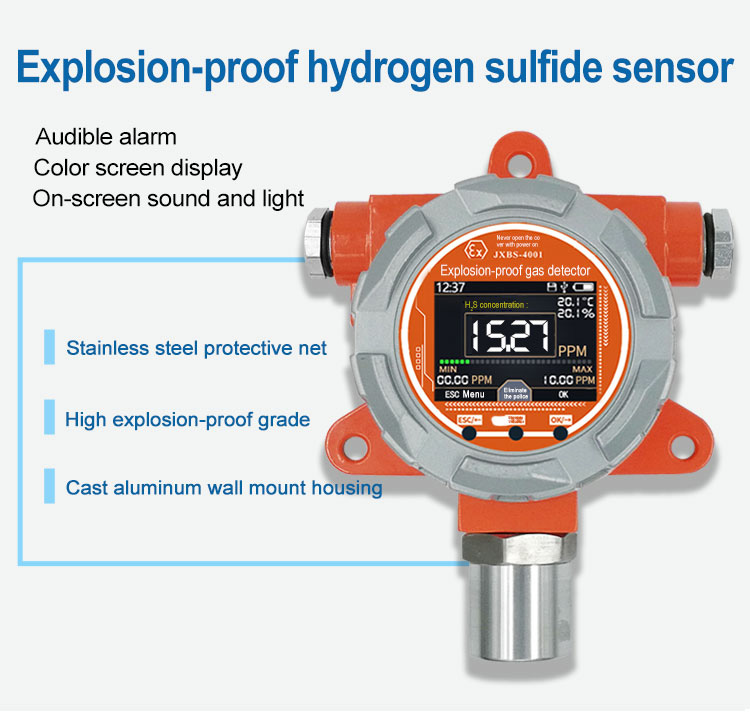Background:
According to incomplete statistics, there are about 4,000 sewage treatment plants in operation nationwide. With the increasing urbanization of our country, pollution problems such as sewage odor have become increasingly prominent. The main sources of sewage are urban domestic sewage, industrial sewage and so on. After the urban sewage treatment plant, the sewage will produce harmful gases during the hydrolysis process. Among them, gas hazards have caused great trouble to the inside and surrounding of the plant. Sewage pool fermentation will produce hydrogen sulfide (H2S), ammonia (NH3) and carbon monoxide (CO) gas, etc.The foul-smelling gases that people smell are hydrogen sulfide and ammonia. At this time, it is necessary to use gas detectors with various built-in gas sensors for targeted monitoring.We can monitor hydrogen sulfide gas using a hydrogen sulfide sensor.We can monitor hydrogen sulfide gas using a hydrogen sulfide sensor.

Introduction of hydrogen sulfide sensor:
Because there are many places in water treatment sewage treatment facilities that contain dangerous gases and toxic and explosive chemicals. Therefore, it is more necessary to select different gas detectors for targeted monitoring according to the use environment.
Wastewater treatment is a necessary way to purify water sources and realize recycling. Especially with the increasingly prominent problems of water shortage and water pollution, wastewater treatment has begun to receive widespread attention. In the sewage treatment plant, its water treatment facilities mainly include adjustment tank, acid-base neutralization tank, sedimentation tank, aeration tank, dosing tank, water pump, sludge dewatering and control system. The whole process will generate a lot of dangerous gas.
The toxic gas is represented by hydrogen sulfide. Hydrogen sulfide is an inorganic compound, and it is a colorless, flammable acid gas under normal circumstances. Hydrogen sulfide is an acute and highly toxic, inhaling a small amount of high concentrations of hydrogen sulfide can be fatal in a short time. Low concentrations of hydrogen sulfide have effects on the eyes, respiratory system and central nervous system.
Hydrogen sulfide is an acute and highly toxic, inhaling a small amount of high concentrations of hydrogen sulfide can be fatal in a short time. Low concentrations of hydrogen sulfide have effects on the eyes, respiratory system and central nervous system.
 : +86 155 8830 2704
: +86 155 8830 2704 : jxdziot@gmail.com
: jxdziot@gmail.com
